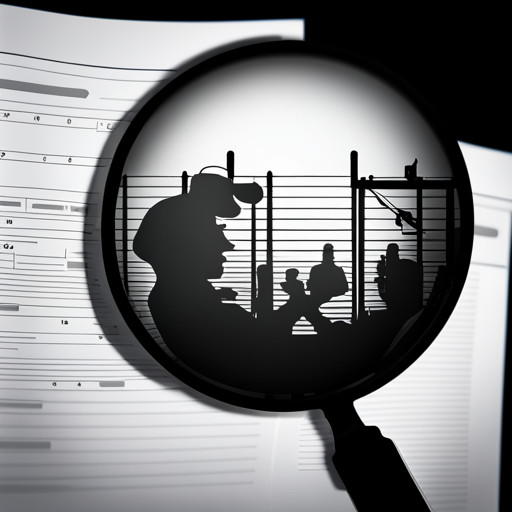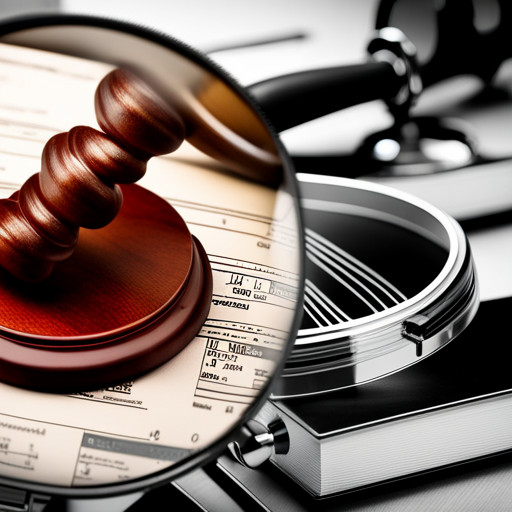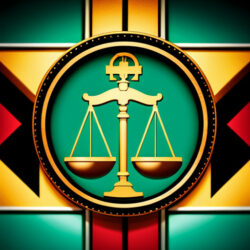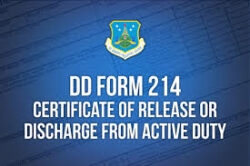Leveraging Faith and Facts: The Critical Role of Medical Evidence in Camp Lejeune Cases
In the realm of medical litigation, the intersection of faith and empirical evidence often determines the trajectory of Camp Lejeune cases.

This article explores the critical role of medical evidence in these cases, examining how faith influences the interpretation of this evidence.
It also presents case studies that underscore the efficacy of such evidence in achieving successful outcomes.
Key Takeaways
- Camp Lejeune experienced water contamination from the 1950s until 1987, exposing residents to harmful chemicals.
- Exposure to these contaminants has been linked to various health conditions, including cancer, kidney and liver diseases, and neurological disorders.
- Evidence skepticism and religious ethics can hinder the acceptance of scientific data in cases involving religious beliefs, creating ethical dilemmas for plaintiffs.
- Medical evidence, such as epidemiological studies and clinical evidence, plays a crucial role in establishing causal relationships and ensuring accurate diagnosis and understanding of disease manifestation.
Understanding the Background of Camp Lejeune Cases

The background of Camp Lejeune cases provides an important context for comprehending the intersection of medical evidence and faith in legal proceedings. Camp Lejeune, a military base in North Carolina, has a notable history that includes a significant episode of water contamination. From the 1950s until 1987, residents of Lejeune were exposed to various contaminants in the water supply, including volatile organic compounds (VOCs), such as trichloroethylene (TCE), tetrachloroethylene (PCE), and benzene.
The history of Lejeune's contaminant exposure carries implications for both science and law. Researchers have since linked exposure to these VOCs to numerous health conditions, including certain types of cancer, kidney and liver diseases, and neurological disorders. Consequently, numerous lawsuits have been filed by veterans and their families against the Department of Defense, alleging that the military failed to disclose or properly address the contamination.
In these legal proceedings, faith and medical evidence intersect in unusual ways. Particular emphasis is placed on epidemiological studies and clinical evidence, which establish causal relationships between the contaminants and the plaintiffs' health conditions. This evidence forms a crucial part of the plaintiffs' legal strategies, demonstrating the tangible impact of the contamination on their lives. However, faith in the justice system and the credibility of the scientific evidence also play a role, as plaintiffs must trust that these elements will come together to secure a favorable outcome.
The Intersection of Faith and Facts in Medical Litigation

The intersection of belief systems and empirical data often manifests in the realm of health-related litigation. This convergence is primarily witnessed in the context of the Camp Lejeune cases, where the contest between religious ethics and scientific evidence has played a pivotal role. Deciphering this intersection requires a keen understanding of the nuances of medical jurisprudence and the complexities of faith-based ethics.
1. Evidence Skepticism: This pertains to the hesitancy in accepting scientific data, often due to predetermined religious beliefs. In many Camp Lejeune cases, this skepticism has been a significant hurdle, necessitating an evidence-based approach in litigation.
2. Religious Ethics: The ethical principles derived from religious beliefs often clash with scientific evidence. This has been observed in the ethical dilemmas faced by plaintiffs in Camp Lejeune cases, who often grapple with reconciling their faith with medical realities.
3. The Role of Medical Evidence: Empirical data is instrumental in health-related litigation. In the context of Camp Lejeune cases, strong medical evidence has been critical in establishing the links between the contaminated water and the health issues suffered by veterans and their families.
4. Navigating the Intersection: To handle such cases effectively, legal professionals must skillfully navigate the intersection of faith and facts. This entails understanding the nature of evidence skepticism and religious ethics and leveraging them in the pursuit of justice.
Role of Medical Evidence in Proving Camp Lejeune Cases

Empirical data has proven to be an indispensable tool in establishing the correlation between Camp Lejeune's water contamination and the ensuing health complications. Scientifically robust evidence-collection methods are paramount to objectively demonstrate the link between exposure to contaminated water and adverse health outcomes.
Many cases have been witnessed where medical misdiagnosis resulted from an inadequate understanding of the complex relationship between environmental exposures and disease manifestation. Detailed analytical skills and advanced research methodologies are essential in this context to prevent such misinterpretations.
The table below explains the role of medical evidence in Camp Lejeune cases:
| Medical Evidence | Role in Camp Lejeune Cases |
|---|---|
| Empirical Data | Establishes link between water contamination and health complications |
| Evidence Collection | Helps in proving exposure to contaminated water |
| Medical Misdiagnosis | Ignites the need for advanced research methodologies |
| Detailed Analysis | Aids in understanding disease manifestation |
| Advanced Research Methodologies | Prevents misinterpretations and ensures accurate diagnosis |
How Faith Influences Perception and Interpretation of Medical Evidence

Religious beliefs and convictions can significantly shape an individual's understanding and interpretation of empirical data, particularly regarding health-related issues. This influence can be observed in assessing medical evidence in cases related to Camp Lejeune.
The potential difference in interpretation due to religious bias emphasizes the critical role of scientific literacy in bridging the gap between faith and facts.
The influence of religion on perception alteration can be delineated into four primary aspects:
1. Belief Systems: The worldview dictated by religious beliefs can deeply impact how scientific data is interpreted, potentially skewing perceptions of causality and risk.
2. Moral Values: Religious teachings often provide a moral framework that can influence decisions about health interventions or risk acceptance.
3. Trust and Authority: Trust in religious authorities may rival or supersede trust in scientific authorities, impacting the acceptance of medical evidence.
4. Coping Mechanisms: Religion often offers coping strategies for dealing with illness or health risks, which can shape responses to medical evidence.
In the context of Camp Lejeune, these aspects can significantly impact the understanding of the health impacts of prolonged exposure to contaminated water. This highlights the need for clear communication and the provision of comprehensive medical evidence to combat potential religious bias and ensure informed decisions are made based on empirical data.
Case Studies Highlighting the Success of Medical Evidence in Camp Lejeune Cases

Several instances underscore the successful application of empirical data in assessing the health impacts of prolonged exposure to contaminated water at Camp Lejenue. Detailed evidence evaluation has been instrumental in these scenarios, with the analytical rigor applied to the medical data often determining the outcome of subsequent litigations.
Case studies from Camp Lejeune offer a rich tapestry of data that demonstrates the potent impacts of such contamination. With a primary focus on toxicology and epidemiology, the research has delved into various health conditions, including cancer, neurological disorders, and reproductive health issues. These adverse health effects, linked to exposure to volatile organic compounds, have provided impetus to successful litigations.
In several instances, epidemiological studies have served as the cornerstone of litigation success. These studies, often longitudinal in nature, have offered conclusive evidence of the correlation between the contaminants and the health impacts. The meticulous nature of such research has been pivotal in establishing causality, which is integral to evidence-based litigation.
Additionally, the role of toxicological data cannot be understated. Detailed analyses of water samples have revealed the presence of harmful substances such as trichloroethylene and benzene, which have been linked to various health conditions. This data, combined with the results of health impact assessments, has been instrumental in successful litigations.
Frequently Asked Questions
What Is the Process for Filing a Camp Lejeune Case?
In filing a Camp Lejeune case, the claimant must first establish eligibility by meeting certain criteria, such as proof of service at Camp Lejeune during the specified time period.
Next, comprehensive claim documentation, including detailed medical evidence, must be compiled. This documentation should thoroughly substantiate the claimant's medical condition and establish a direct link to the environmental hazards at Camp Lejeune.
The process necessitates meticulous research and analysis to ensure a robust case.
How Can a Lawyer Assist in a Camp Lejeune Case?
Legal assistance in a Camp Lejeune case can be instrumental due to the complex nature of presenting medical evidence. Lawyers, equipped with specialized knowledge, employ strategic legal tactics to ensure the comprehensible presentation of medical facts.
This involves meticulous analysis of medical records, thorough research on associated health conditions, and the crafting of compelling arguments rooted in medical science.
The expertise provided by legal professionals can significantly enhance the prospects of a successful claim.
What Are the Potential Outcomes of a Successful Camp Lejeune Case?
Potential outcomes of a successful Camp Lejeune case encompass both compensation possibilities and health implications.
Successful claimants may be entitled to monetary compensation, which can be utilized for medical expenses incurred.
In terms of health implications, the recognition of a link between exposure at Camp Lejeune and certain medical conditions can lead to access to specialized care and treatments, thereby improving the quality of life for affected individuals.
Are There Support Groups or Resources Available for Those Affected by Camp Lejeune?
Various support groups and resources do exist for those affected by Camp Lejeune incidents. Resource accessibility is crucial, particularly for obtaining emotional support and medical aid. These resources extend to online platforms and local support groups that offer counseling, legal advice, and medical information.
Additionally, they provide a platform for victims to share experiences, gain knowledge, and build resilience. However, the effectiveness of these resources often depends on the individual's unique circumstances.
How Does the Court Handle Disputes or Discrepancies in Medical Evidence in Camp Lejeune Cases?
In the adjudication of Camp Lejeune cases, courts employ a rigorous process of evidence evaluation to address disputes or discrepancies in medical evidence.
This involves meticulously examining medical records, expert testimonies, and scientific studies.
Discrepancies are resolved through a thorough analysis of conflicting evidence while considering the credibility of sources and the validity of methodologies used in producing the evidence.
Thus, reliable medical evidence plays a crucial role in the final verdict.
Conclusion
In conclusion, medical evidence plays a paramount role in adjudicating Camp Lejeune cases. Like a surgeon's scalpel dissecting the layers of a complex medical condition, this evidence meticulously unravels the truth.
A case in point, the Veterans Administration acknowledged 4,400 claims related to water contamination at Camp Lejeune, emphasizing the value of medical facts in this pursuit of justice.
This amalgamation of faith and facts is instrumental in molding perceptions, interpreting evidence, and deciding outcomes in these critical cases.




